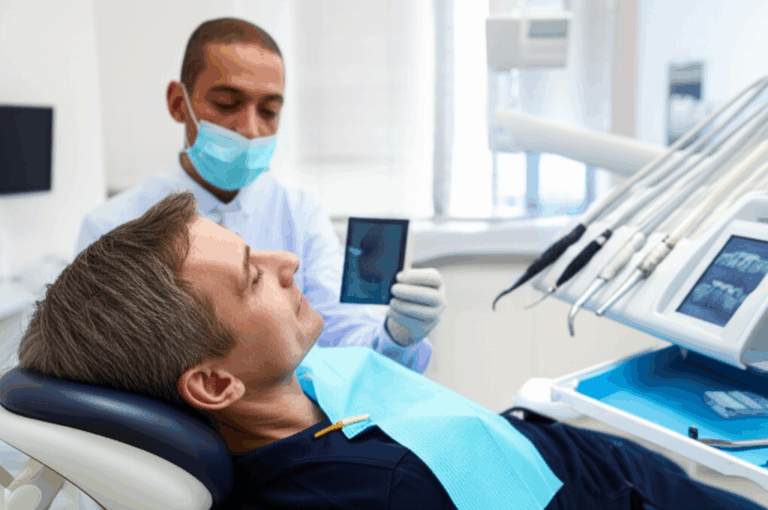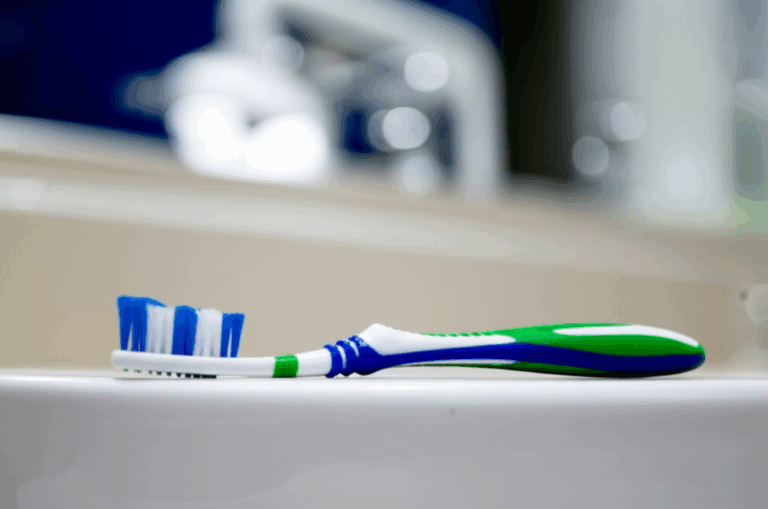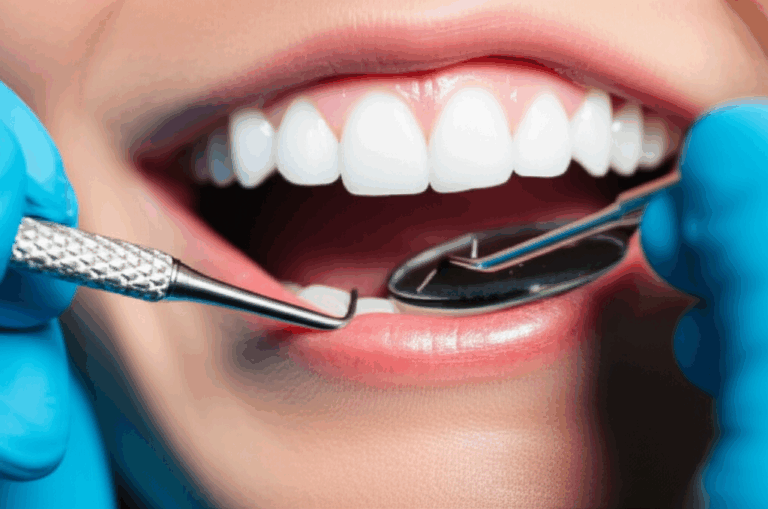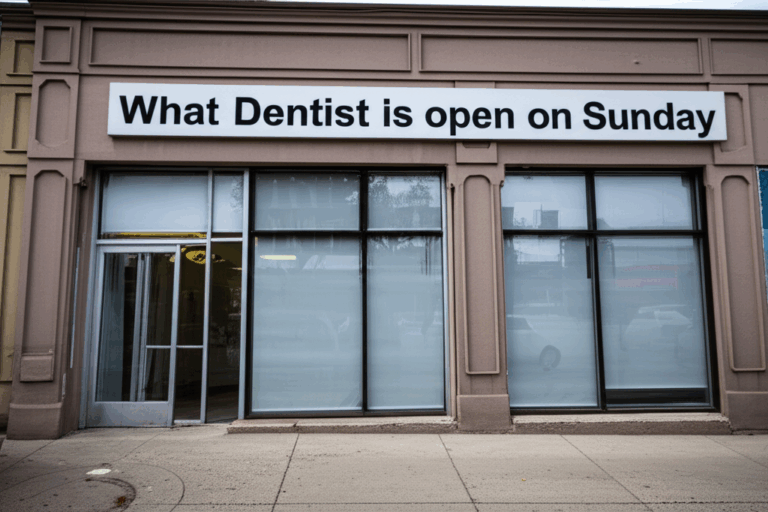
What is a Dentist Consultation? Your Comprehensive Guide to Your First Dental Visit
A dentist consultation is more than just a quick look at your teeth—it’s your first step to a healthier, happier smile and more confidence. In this article, I’ll walk you through exactly what happens at a dental consultation, why it matters, and how to make the most out of your visit. If you’re nervous about seeing the dentist or don’t know what to expect, keep reading! This guide is easy to follow and full of real-life tips. You’ll feel ready, informed, and in control of your mouth health.
Table of Contents
What Exactly is a Dentist Consultation?
A dentist consultation is your first visit to the dentist, where the dental team takes a close look at your teeth, gums, and mouth. Think of it as a “check-up” for your smile! The dentist will ask about your health history, look for any tooth problems, gum issues, or other trouble, and might use X-rays to see whatever they can’t see with their eyes.
You get to talk about:
- Any pain or things that worry you
- What you want for your teeth (whiter or straighter teeth, for example)
- How to keep your mouth healthy at home
This appointment isn’t just for emergencies. Even if everything feels ok, a consultation helps find problems early—before they get bigger or cost more to fix.
Why are Dentist Consultations so Important?
Think if you never took your car for an oil change. It might work for a bit, but you’d have a big, expensive problem soon. It’s the same with your teeth! Regular dental consultations:
- Catch small problems before they become big and painful
- Help stop bad breath, tooth loss, or even dangerous infections
- Save you money, since stopping problems is cheaper than fixing them later
Researchers at the ADA (American Dental Association) say people who get regular check-ups have better tooth health and are less likely to get some diseases. Dentists agree: this first consultation gets you started on the right path.
Who Needs a Dental Consultation?
You might think, “I’m not hurting, so I don’t need to see a dentist.” But almost everyone needs a dental consultation, like:
- Kids & Adults: Children should go by age 1, and adults need a visit every 6 months.
- New Patients: If you moved or want a new dentist, this is your chance to meet them.
- People With Dental Problems: Toothaches, bleeding gums, bad breath, or changes in your mouth mean you should go.
- People Who Feel Nervous: The consultation is a nice, easy start if you’re worried.
If you wear braces, have dentures, or have other dental work, check-ups are even more important to keep things working right.
What Happens During a Dentist Consultation?
Let’s break down the steps so you know what to expect—and don’t need to guess!
Step 1: Welcome & Paperwork
When you come in, friendly staff will greet you. They’ll ask you to fill out some forms about your health, the medicine you take, and your past dental care. Don’t worry—it’s all to keep you safe and help you get the best care.
Step 2: Talking with the Dentist or Hygienist
Next, you’ll talk to the dentist or dental helper. They’ll ask about:
- Any pain or problems you have
- How you brush and floss
- What you want for your teeth (less pain, better-looking smile, and so on)
Step 3: Mouth Check
Now the dentist will:
- Look at your teeth for cavities or old fillings
- Check your gums for any bleeding or redness
- Look for early signs of mouth cancer
- See how your teeth fit together (your “bite”)
- Use mirrors and little tools to see every spot
Step 4: X-rays or Other Tests
Some problems hide under your gums or deep inside teeth. Dental X-rays help find these:
- Bitewing X-rays look for decay between teeth.
- Panoramic X-rays show your whole jaw at once.
- Intraoral cameras can take pictures in your mouth so you can see what the dentist means.
Step 5: Diagnosis and Plan
Now the dentist will:
- Show you what they found (sometimes on a screen)
- Tell you about any problems and what you can do to fix them
- Answer your questions—this is a good time to ask anything!
Step 6: Money and Scheduling
Before you leave, someone will explain:
- What today’s visit cost and what future care might cost
- What your insurance might pay for
- Ways you can pay or make payment plans
You can set your next appointment—easy and simple.
What Questions Should I Ask My Dentist?
Don’t be scared to ask! Dentists like answering questions. Here are some ideas:
- How healthy are my teeth and gums?
- What can I do at home to have a healthy mouth?
- What treatments do you think I need?
- How much will this cost?
- Can you show me what you see on the X-rays?
Questions help you feel more in control and let you really know what’s going on with your teeth.
What Types of Dental Consultations Are There?
Dental consultations aren’t all the same. Depending on your age, needs, and what you want for your teeth, you could have different kinds:
1. General/Routine Consultation
This is the basic check-up all people need—children and adults.
2. Emergency Consultation
Tooth pain or a broken tooth? You need help fast. Emergency consultations get you out of trouble quickly.
3. Specialist Consultation
Your dentist might send you to another dentist if you need:
- Braces
- Gum treatment
- Root canal
- Dentures or implants
4. Second Opinions
Not sure about the treatment your dentist suggested? Go to another dentist for advice.
5. Virtual Consultations
Can’t leave home or live far away? Some dentists offer video calls, where you can talk using your phone or computer.
How Can I Prepare for My Dental Consultation?
Getting ready helps things go smoothly and helps you feel more sure of yourself. Here’s what to do:
- Bring Your Info: Write down the medicine you take, any allergies, and your health history.
- List Your Concerns: Write down what you want to ask or worry about. No question is too small!
- Check Your Insurance: Find out what your plan pays for before you go.
- Arrive Early: You’ll need a little time for forms and to relax.
A little planning makes your visit easier and less stressful.
How Much Does a Dental Consultation Cost?
Worried about the price? You’re not alone. Around 40% of adults wait to go to the dentist because of cost. Here’s some good news:
- Dental consultations are mostly paid for by insurance as part of regular care.
- Many offices give discounts, free first visits, or easy payment plans.
- You’ll know the price before anything big happens, so there won’t be any big surprises.
Ask your dental office to explain prices. They’re happy to help!
What Are the Benefits of Regular Consultations?
Dentist consultations don’t just stop cavities—they help your mouth and whole body in the long run.
Early Finds
- Dentists find problems before you feel pain.
- They can spot things like early signs of diabetes or cancer.
- Handling things early means smaller, cheaper treatments.
Bigger Confidence
- When you know your smile looks good, you feel better around people.
- Studies say 80% of people feel better after a check-up.
Learning Time
- Dental staff will show you the right way to brush and floss at home.
Saves Money
- Stopping problems is much less costly than fixing big tooth or gum problems later.
How Does Dentistry Help My Overall Health?
Your mouth shows a lot about your whole body. Small problems in your mouth can lead to bigger problems somewhere else, like:
- Heart disease
- Diabetes trouble
- Infections that can spread
Regular dental visits mean a healthier mouth—and a healthier you.
Are Virtual Consultations a Good Idea?
Today, lots of people use online chats with their dentist. Here’s how these work:
- You talk with your dentist by video or phone.
- You show or explain your problem, sometimes using your phone’s camera.
- The dentist gives you advice or tells you if you need to come in.
Virtual visits are good for:
- Quick advice
- Talking about small problems
- Planning what you need before coming in
They’re not the same as a real check-up, but they are a good start.
Common Dental Concerns: What Should I Mention?
Don’t keep pain or worry to yourself! Tell your dentist if you have:
- Tooth pain, sensitivity, or if teeth feel loose
- Bleeding or red gums
- Bad breath that stays
- Changes in how your teeth fit together
- Any sores or lumps in your mouth
If you have braces, implants, dentures, or wear a night guard made by a china dental lab, let your dentist check them too!
What About Dental Anxiety?
If you feel worried about the dentist, you’re not alone. About 1 in 4 adults feel this way. You can:
- Tell your dental team how you feel—they’ll explain everything
- Ask about things like gentle sedation or laughing gas
- Bring a friend or family member for support
A friendly dental team makes a big difference. Many offices have headphones or TV you can use to help you feel calm.
How Does a Dental Lab Improve Your Treatment?
Dentists often work with special places called dental labs for things like crowns, veneers, or dentures. Good labs, like a modern digital dental lab, use tough and safe materials with new computer technology. These labs help your dentist by:
- Making crowns, bridges, or night guards that fit just right
- Designing better-looking smiles
- Making fast models that help you get your new teeth quickly
When your dentist works with a great lab, your dental work is comfy, lasts longer, and looks fantastic!
Conclusion: Take the Next Step for a Healthier Smile
Your smile deserves the best. Don’t wait for pain—get in charge of your mouth health with a dental consultation. Whether you’re worried, want a whiter smile, or just want to stay healthy, your first visit sets you up for a happy, healthy future.
A good dental team—helped by top partners like a trusted china dental lab or dentist—will help you every step of the way.
Summary Table: What You Should Remember
| Step | What Happens | Why It Matters |
|---|---|---|
| Fill Out Forms | Give health and dental info | Keeps you safe and helps dentist |
| Talk With Dentist/Hygienist | Share worries and goals | Visit is right for you |
| Mouth Exam | Check for problems | Finds trouble early |
| X-rays/Tests | Look for hidden trouble | Finds things before they hurt |
| Diagnosis & Plan | Dentist tells you next steps | Know what to do |
| Money & Scheduling | Costs explained, next visit made | No surprises, easy to follow up |
| Top Dental Labs | Good crowns, dentures, or bridges | Fit better, feel better |
Frequently Asked Questions
Q: Do I need a consultation if my teeth feel fine?
A: Yes! Trouble often starts small and with no pain. The dentist can find problems before they get bigger.
Q: How often should I see the dentist?
A: Twice a year works for most people. Your dentist may say you need more visits for special problems.
Q: Will my insurance pay for a consultation?
A: Most likely! Most plans cover these visits. Double-check with your clinic or insurance to be sure.
Q: Can kids visit the dentist for consultations?
A: Yes! Kids should have their first check-up by age one and regular visits as they get older.
Q: I’m scared of the dentist. What should I do?
A: Tell your dental team. They know lots of ways to help you feel safe and calm.
Most Important Things to Remember
- A dentist consultation is the first step for good mouth care.
- Early checks stop painful, expensive problems.
- Everyone—kids, adults, people with braces or fake teeth—needs regular visits.
- Don’t forget your questions and concerns!
- Good dental labs and caring dentists give best and longest results.
- Your mouth’s health is linked to your whole body.
- Regular visits save money and keep your smile bright for years.
Remember, you’re not just a patient—you’re a partner in your dental care. Take your first step and book your consultation today. Your smile will thank you!








